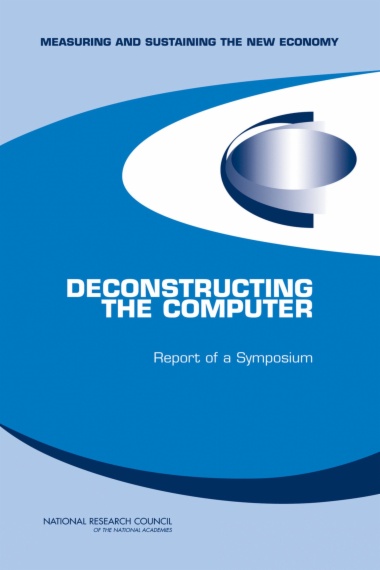Starting in the mid 1990s, the United States economy experienced an unprecedented upsurge in economic productivity. Rapid technological change in communications, computing, and information management continue to promise further gains in productivity, a phenomenon often referred to as the New Economy. To better understand this phenomenon, the National Academies Board on Science, Technology, and Economic Policy (STEP) has convened a series of workshops and commissioned papers on Measuring and Sustaining the New Economy.
This major workshop, entitled Deconstructing the Computer, brought together leading industrialists and academic researchers to explore the contribution of the different components of computers to improved price-performance and quality of information systems. The objective was to help understand the sources of the remarkable growth of American productivity in the 1990s, the relative contributions of computers and their underlying components, and the evolution and future contributions of the technologies supporting this positive economic performance.
- Cover
- Front Matter
- I Proceedings: Introductory Remarks--Dale W. Jorgenson
- Panel I : Performance Measurement and Current Trends
- Panel II: Computer Hardware and Components
- Panel III: Peripherals: Current Technology Trends
- Panel IV: Peripherals: Current Technology Trends, continued
- Panel V: What Have We Learned and What Does It Mean?
- Concluding Remarks--Dale W. Jorgenson
- II RESEARCH PAPER: Performance Measures for Computers--Jack E. Triplett
- Appendix A Biographies of Speakers
- Appendix B Participants List
- Appendix C Bibliography

